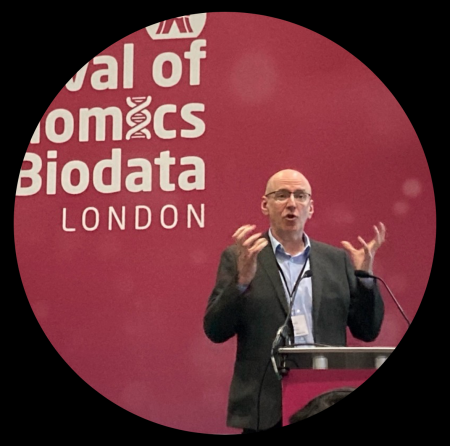
Dr Martin Callaghan
Staff Tutor In Computing & Communications
School of Computing & Communications
Biography
I'm a Staff Tutor in the School of Computing and Communications, where I'm qualification lead our Q68 top-up degree programme and serve as the School's Generative AI lead. I'm also a module team member for TM351 and TMXY273/274.
As a Staff Tutor, a key part of my role is supporting, managing and developing our associate lecturers – the talented tutors who do the day-to-day teaching and student support. I work with them to enhance their teaching practice, navigate challenges, and ensure our students get the best possible learning experience. Having taught at every level from FE colleges through to university, I understand the complexities and rewards of teaching computing, and I'm committed to helping our tutors develop their skills and confidence.
My journey into academia has been really varied. I spent around twenty years teaching and managing Computing at Further Education colleges before moving into research computing consultancy at the University of Leeds, where I built and led teams supporting researchers with High Performance Computing, cloud computing, and software development. More recently, I worked as a lecturer and academic assessment manager in the school of Computer Science at the Univesity of Leeds, where I walso worked on the school Curriculum Redefined programme.
I'm passionate about helping students develop both the technical skills that industry needs and the broader critical thinking abilities that make for well-rounded professionals. Computing is as much about problem-solving, communication, and adaptability as it is about code and databases.
Through my consultancy work across public and private sectors, I've seen how employers value graduates who can think critically, learn independently, and work collaboratively. These are skills that a broad university education uniquely develops.
My research focuses on making AI more accessible, usable and sustainable. I'm particularly interested in small language models that are energy-efficient and interpretable, essentially technology that people can actually understand and trust. My PhD explored using retrieval-augmented generation (RAG) for multi-document summarisation and I continue to work on practical applications of LLMs, from teaching assistants to helping users navigate complex technical documentation.
I believe in learning by doing and I try to create supportive environments both for our students and our teaching team. Places where people can experiment, make mistakes, and build both the technical competence and the transferable skills that will serve them throughout their careers.
Publications
Book Chapter
Manipulating and Basic Analysis of Tabular Metagenomics Datasets Using R (2023)
Journal Article
gwverse: A Template for a New Generic Geographically Weighted R Package (2022)